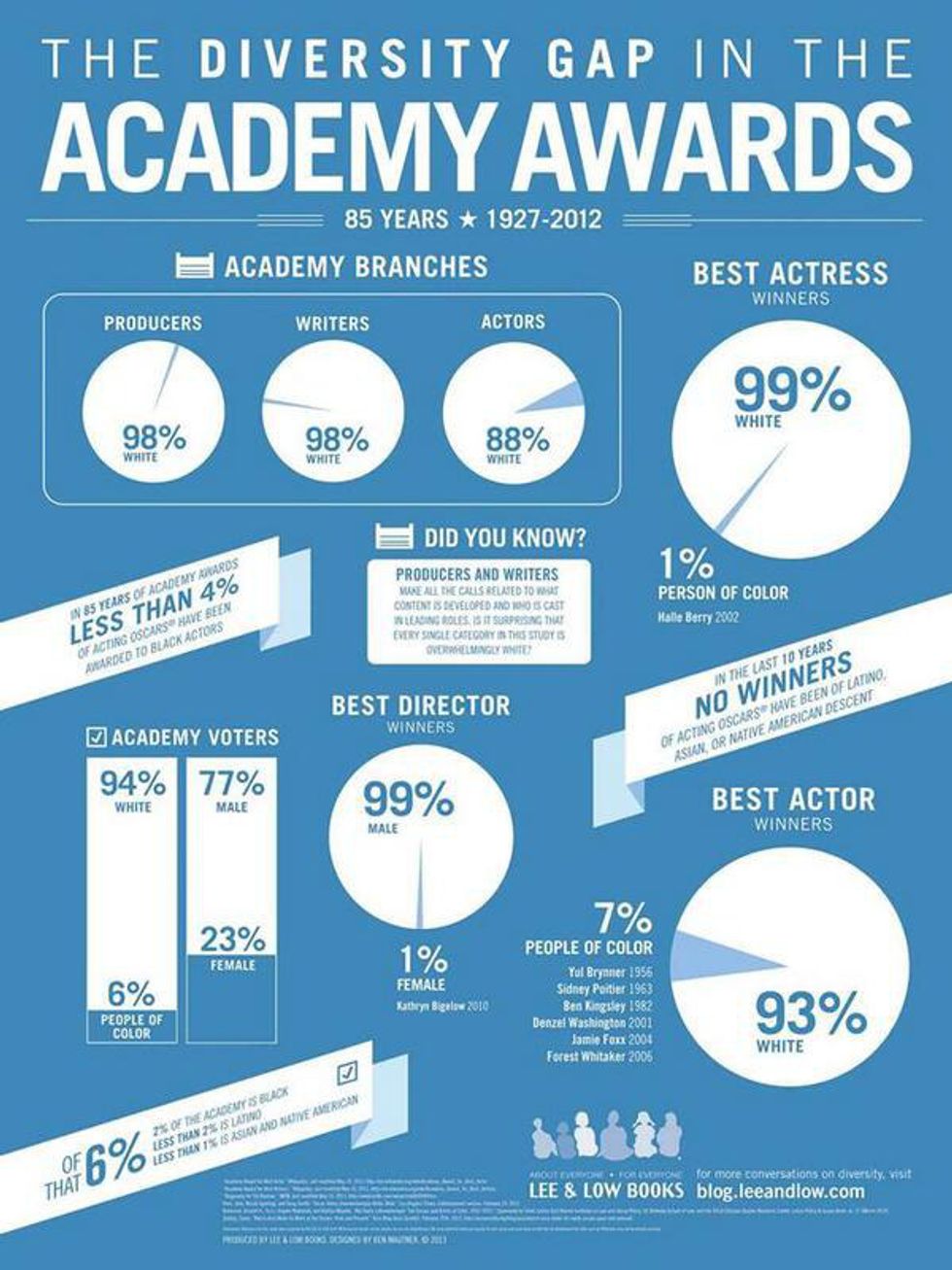The Oscars, (probably) the most prestigious night in Hollywood and for film in general. It is supposed to be a night that celebrates film in every aspect of its craft. I've been watching the Oscars since I can remember, and it has been an inessential part of my childhood. To me, watching the Oscars was more about the talent than the award.
Growing up, I began to take subtle notice of the repeating pattern of nominations and winners throughout the year. I took stock of who was nominated, what films were represented and exactly just how the Academy worked. What I began to discover left a bad taste in my mouth.
I am sure several of you out there have read or heard about the controversy surrounding this year's Oscar nominations. For the second time in a row, the nominees of the highest dredge of nominations were all white actors. A lot of people took to Twitter to voice their outrage and concern making the now popular hashtag #OscarsSoWhite trend. The outcries of discontent extended to popular celebrity minorities, such as director Spike Lee and Jade Smith, to boycott the event.
Here's why the Oscars, as a whole, are an important venue for minority representation and why Hollywood, as a whole, has failed minorities. I agree that awards should be based on merit and not on any other factors, however, I think it is important to clarify one distinct fact as to why this is not even true to current nominees. It is important to break down how the Academy nomination and awarding system works.
The nominees and winners are determined by members of The Academy of Motion Picture Arts and Sciences, each representing various categories and voting for respective categories such as actors voting for actors and directors voting for directors. The Academy is made of more than 6,000 of these members and is embodied by 97% white and 77% male, with an average age of 63.
We have to look at this properly. Most films that deal with minority leads probably won't be nominated for many awards, so the directors of those films have an unfair disadvantage. This is reflected in the film nominations every year. That being said, even though these films have cultural merit, they generally tell limited narratives in every perspective.
What the real root of this problem consists of is not only the lack of diversity in the judging panel for these films but also in the films being made. The stories for minorities are just not there and when they are they exist in constricting stereotypes. If we were to take a look what roles Denzel Washington and Halle Berry won their Oscar for, you would find a distinct retelling of stereotypical storylines, such as the gangster or working class people.
I can only speak from a place of experience of the importance of media representation regarding people of color. Media is everywhere we go and it is in everything we see. The more we look around us the more that it is prevalent in our every day life. People who are not minorities also pick up on these stereotypes created by the media as the ultimate truth and it can be frustrating to be painted in one light.
Film is a medium that reaches a global audience and, if the stories that are being told about people of color are of one perspective, it can lead to misinformation and harmful assumptions. This is the real fight against the Academy and Hollywood. The lack of representation in a grand scale that covers directors, actors and writers. This is one of the reasons so many actors of color turn to roles in television because it offers them the fluidity to be whatever character they want. One of the best examples of this is Viola Davis in her role in How To Get Away With Murder.
I think we should take into consideration what we watch and realize that most films are showing only one particular narrative. Most of the time that narrative is completely distorted and that is the biggest lesson we can get from this social event. There is merit to people's complaints and do not let the age old argument of "race shouldn't be a factor" come up, because it really isn't the problem here.This is more than winning an award but recognizing Hollywood's systematic white-washing of race in film and the lack of recognition in the dangers of doing so.
I want to leave this video of Idris Elba explaining the importance of media representation and why it is so problematic in today's age:






















